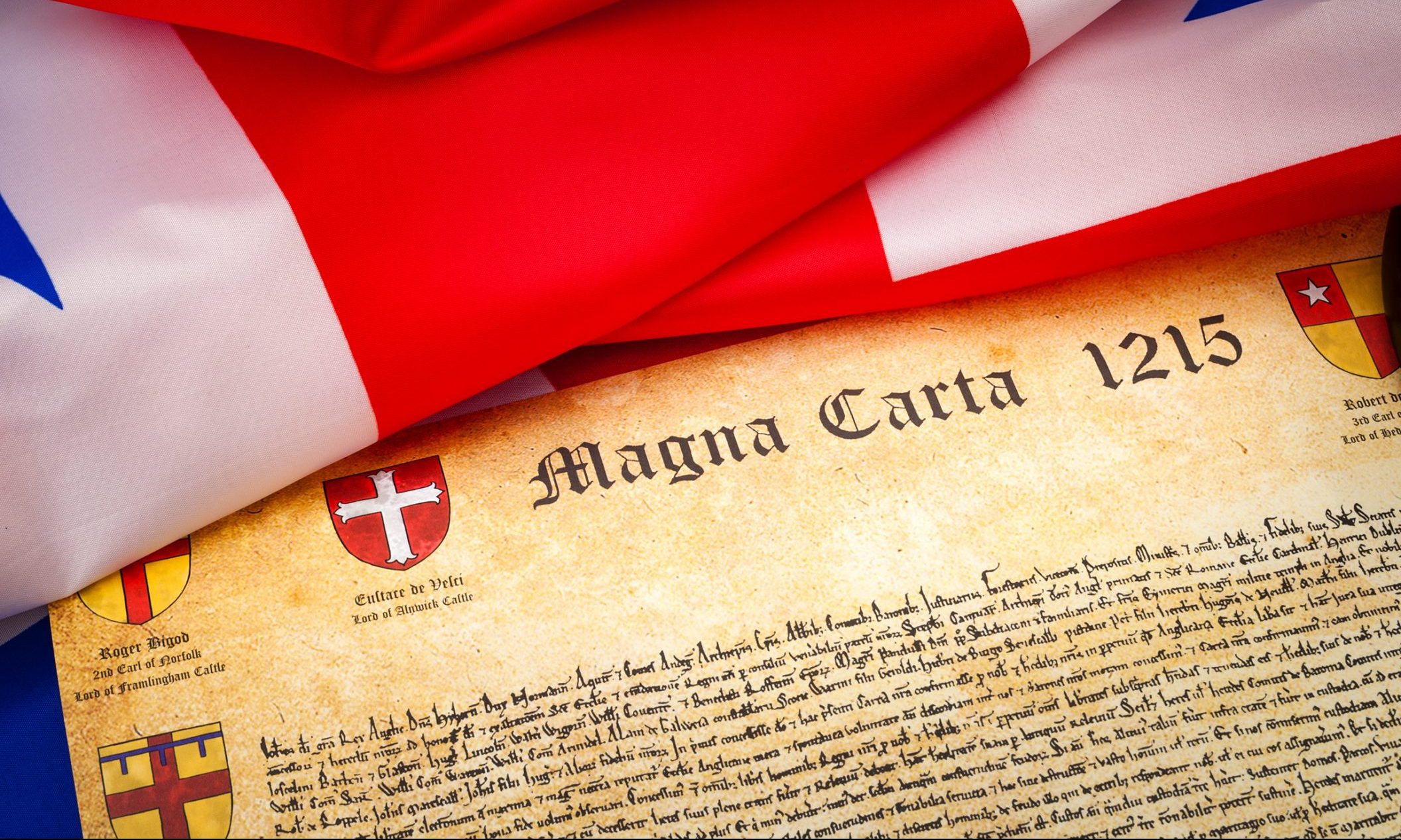Danial Jarrahi Wrote In a Note To The International Relations Think Tank: Two dates in English history that school children once memorized are 1066 and 1215. Of course, the latter date is King John’s grant of Magna Carta to his barons, and the former marks William the Conqueror’s invasion of England, culminating in the death of the last Anglo-Saxon king at the battle of Hastings.
Written by: Danial Jarrahi British Studies MA Student, Faculty of World Studies (FWS), University of Tehran

IRTT: Two dates in English history that school children once memorized are 1066 and 1215. Of course, the latter date is King John’s grant of Magna Carta to his barons, and the former marks William the Conqueror’s invasion of England, culminating in the death of the last Anglo-Saxon king at the battle of Hastings.
Not merely a change in ruling dynasties, the Norman Conquest was an upheaval that altered drastically the nature of English government, social structure and landholding patterns, giving rise to the kingdom that John ruled from 1199 to 1216.
It is often said that the Norman conquerors of England introduced ‘feudalism’, a confusing term for historians and their readers alike, for definitions of feudalism have fluctuated over the years with changes in fashions in historical interpretation. the term refers to the network of ties linking medieval lords to their vassals or knights, mounted warriors, and to the peasants who worked their lands. This pattern of dependent relationships is traditionally believed to have taken shape in Western Europe with the so-called ‘feudal transformation’ of the eleventh century, when regional princes who had usurped the authority of the later Carolingian rulers could no longer enforce law and order.
In Normandy, the duke lost less power than some other French dukes or counts, retaining much of his position as a public official responsible for the general welfare. William the Conqueror succeeded in subduing the Norman nobles and forcing them to fulfil their obligations owed as his vassals. Neither did the general pattern of feudalism prevail in England before the Normans landed there.
English resistance to the Danish threat in the ninth and tenth centuries had not produced a collapse of central authority, but resulted rather in Alfred the Great’s unification of the country. The eleventh century Anglo-Saxon kingdom preserved such typically Carolingian characteristics as direct ties of lordship linking the monarch to the free landholders and the royal household exercising effective control over the chief local officials, the sheriffs.
When Henry II took the English throne in 1154, he built on this foundation to erect a superstructure of ‘administrative kingship’, staffed by literate professionals functioning apart from the royal household.
The fundamental fact of political life in twelfth- and thirteenth-century England was that government was in the hands of a monarch, crowned in a religious ceremony that set him above all his subjects and conferred on him an aura of sanctity derived from his anointing in imitation of Old Testament kings. The coronation ceremony stressed both the king’s God-given authority over his subjects and his responsibility as a Christian to protect his subjects and the Church.
This view of kingship, tracing back to the fifth century, stressed the monarch’s responsibility to God for his subjects’ care as if he were their parent or guardian. Although the eleventh-century reform movement of the Church had blunted the king’s sacred character, its effect on English kings’ traditional authority over the spiritual sphere was minimal. Not even the long and bitter conflict between Henry II and his archbishop of Canterbury, Thomas Becket, resulted in major loss of royal control over the Church.
The late-twelfth-century Dialogue of the Exchequer, authored by a longtime royal financial official, states that God entrusts the king with ‘the general care of his subjects’; it admitted that rulers sometimes act arbitrarily, but denied that their subjects had a right ‘to question or condemn their actions’.
The late-twelfth-century lawbook Glanvill illustrates this confusion. On one hand, its author cites the Roman law maxim, ‘What pleases the prince has the force of law’; yet on the other hand, he asserts that England’s laws were made ‘on the advice of the magnates’. The English coronation ceremony emphasized the divine source of royal power, but included oaths that subjected the king to obligations, notably his duty to protect his people and give them justice.
The lawbook Bracton, authored by a royal judge active in the 1220s and 1230s, pointed to a solution, proposing that the baronage act to curb a law-breaking monarch. A frequently cited passage declared that the king has a superior, namely God, but also the law and the earls and barons who constituted his great council.
Contributing to English notions of kingship were ties of mutual rights and responsibilities between aristocratic lords and their knightly vassals, key aspects of a feudal society. England’s feudal institutions were unique in Europe because the work of the Anglo-Saxon kings in preserving and strengthening royal governance survived. The Anglo-Norman kings (1066–1154), as well as their successors, the early Plantagenet or Angevin kings, preserved their native English predecessors’ authority as public officials.
Under Henry II (1154–89), a process of converting the magnates’ personal ties of loyalty to the king into tenurial relationships proceeded, and they were forced to admit that they held their estates from the king in return for services, chiefly supplying quotas of knights for his army. In effect, the post-Conquest kings ‘territorialized’ obligations owed by their baronage and loaded ever heavier military and fiscal burdens on them as conditions by which they held their baronies.
In the eleventh and twelfth centuries, England was the sole European kingdom where public tribunals capable of handing down conclusive and impartial decisions survived and where the king exercised effective power to carry out public courts’ judgments. None the less, great landholders even in England, by virtue of their standing in local communities, exercised considerable responsibility for justice and for other services that public agencies provide in modern times.
When Henry II and his sons Richard I (1189–99) and John (1199–1216) were absent fighting in France, the justiciar acted as both head of the administration and as regent, a post formerly held by the queen or another close relative. Authority was divided, with the justiciar at Westminster overseeing royal finances, justice, and local agents in the counties, while royal servants travelling with the king’s household abroad dealt with matters of war and diplomacy.
England’s precocious professionalization or bureaucratization of government under the three Angevin kings was driven less by principles of good government than by their need for enormous sums of money for almost continuous warfare on the continent. War was a medieval monarch’s vocation, his route to fame, and the Angevin rulers spent English treasure on protecting the frontiers of their Norman duchy, their county of Anjou, and the inheritance of Henry II’s queen, Eleanor of Aquitaine, in southwestern France.
The medieval English kings had three types of revenues from which to raise funds for their wars. First was income derived from their position as public officials, a legacy lingering from the Roman political tradition that yielded less than in pre-Conquest times. General taxes collected regularly by Anglo-Saxon kings were allowed to lapse after Henry II’s early years, but he and his sons still profited from a royal monopoly over mints and coinage and from royal responsibility for justice. The king did not provide courts for his subjects merely out of a sense of duty, for royal justice was a product to be sold. The profits were substantial, including confiscated goods of condemned felons and numerous fines from convicted criminals, as well as fees charged for the new common law procedures in civil cases. A second source of royal revenue was the king’s private income from his own estates, peopled by peasants owing him labour services and periodic payments. The king, like lesser lords, had the privilege of assessing arbitrary payments known as tallages (Form of taxation) on the villagers of his lands whenever he felt necessary, and this source of revenue became more and more profitable because some villages sited on the royal domain grew into prosperous towns, royal boroughs. The borough inhabitants soon became wealthy enough to bargain with the king for a lump sum to pay as tallage and to negotiate a collective annual rent for their royal grant of rights of self-government. The third category was the king’s feudal income centred on his lordship over the earls and barons, for they owed him financial obligations as well as loyalty and military service. Henry II and his sons exploited vigorously these financial resources, triggering increasing resistance from the baronage. As the character of warfare changed, Henry, Richard Lionheart and John preferred to forgo their vassals’ military service in favour of collecting scutage or shield-money, payments that could be used to hire mercenary soldiers. Over time, scutage came to be levied so often that it resembled a tax on the nobility; King John levied eleven scutages in sixteen years. The king’s feudal position as lord over England’s great landholders gave him other financial advantages. Custom sanctioned a lord’s demand of extraordinary levies from his knights in emergencies, the so-called gracious aids demanded on the knighting of the lord’s eldest son, on the marriage of his eldest daughter, and on his ransoming if captured in battle.



